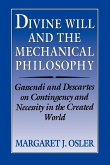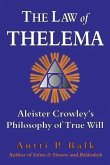"Considered Edwards' finest work, the treatise is a monument of American philosophy," noted Christian History magazine (Vol. 4, No. 4, p.19). They continue, "In this treatise Edwards painstakingly shows that man is indeed free... but that God is still sovereign and still solely responsible for man's salvation. Edwards tries to show that a sinner and humans, in the Calvinist tradition, come into the world under the curse of Adam would never by himself choose to glorify God unless God himself changed that person's character. Regeneration, God's act, is the basis for repentance and conversion, the human actions." A detailed, careful, and strongly Calvinistic look at this important question. Edwards (1703-1758) is by far the best known American theologian. After graduating from and teaching at Yale University, he began a very fruitful ministry at Northampton, MA. The church was the scene of the explosive revival of 1734, 35, and burned fiercely for God under Edwards for several years. Edwards then went to pastor the lowly Indians. But at last he was called to be the first president of Princeton University, where he served only 5 weeks, dying of smallpox.








